Shopping is one of the best ways to immerse yourself in the local culture during your holiday in Vietnam, where you can find unique handicrafts, food items, and clothes at relatively affordable prices. Check out this article for top 10 lovely and awesome things to buy in Vietnam for your friends and family.
10. Vietnamese Coffee
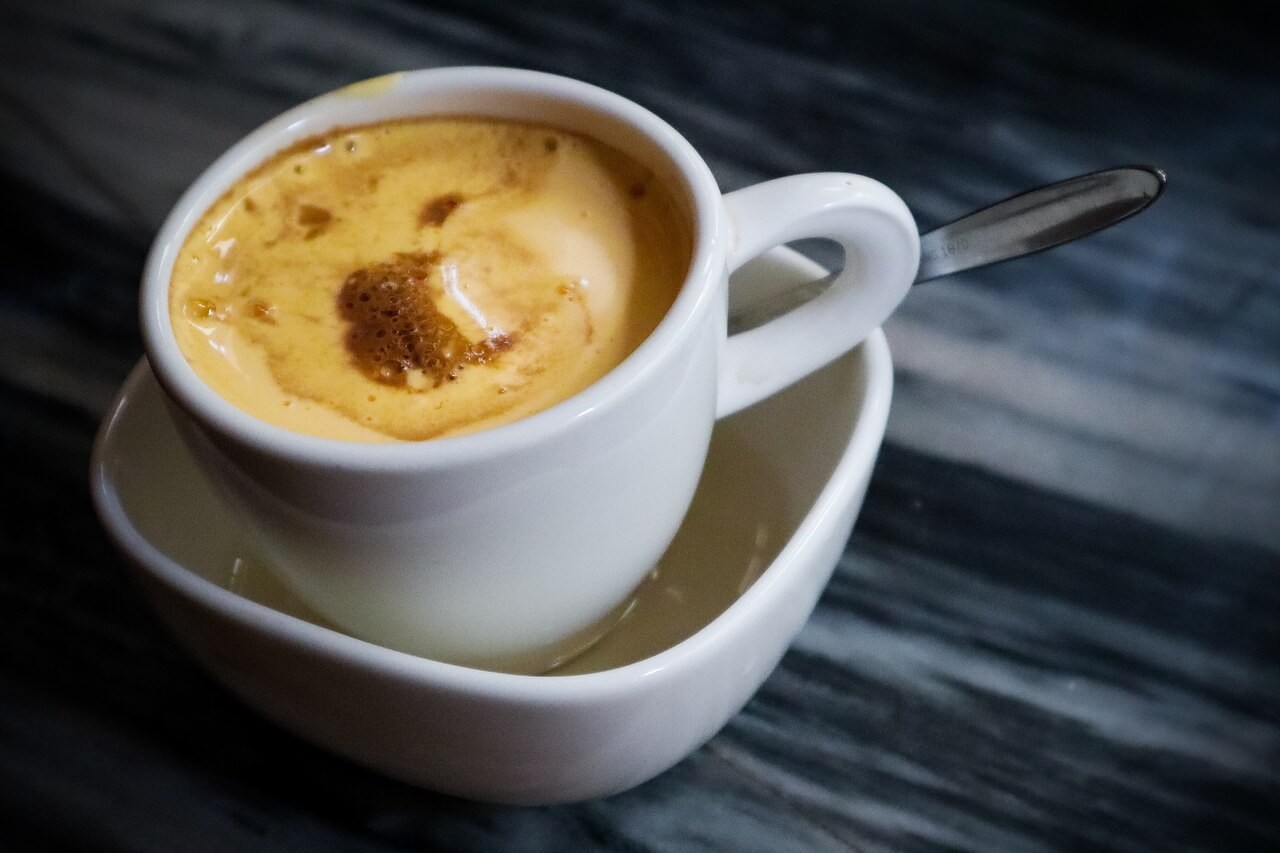 |
| Photo: Expatolife |
Coffee is a huge part of daily Vietnamese life. Vietnam is the second-largest coffee producer in the world. The French brought coffee to Vietnam in the 19th century, and after the Vietnam War, the government instituted a massive coffee production program. By the 1990’s the country’s coffee production started to take off and today Vietnam is producing over 1.73 million tons of coffee a year.
Vietnam is the world’s second largest exporter of coffee, but the coffee is almost always Robusta, which is primarily grown in Vietnam. Robusta is almost twice as strong caffeine wise, with a thick lingering taste and higher acidity. The strong taste, a thicker brew and a few over-roasted beans makes for a different, distinctive taste.
The Vietnamese like their coffee nice and slow, and setting up the filter and choosing right time to drink is an art in itself. When the coffee is good, you’ll want to make it last.
This will be the perfect gifts to bring back to your hometown, and is also affordable with abundant of varieties for you to choose from.
9. Phu Quoc Pepper
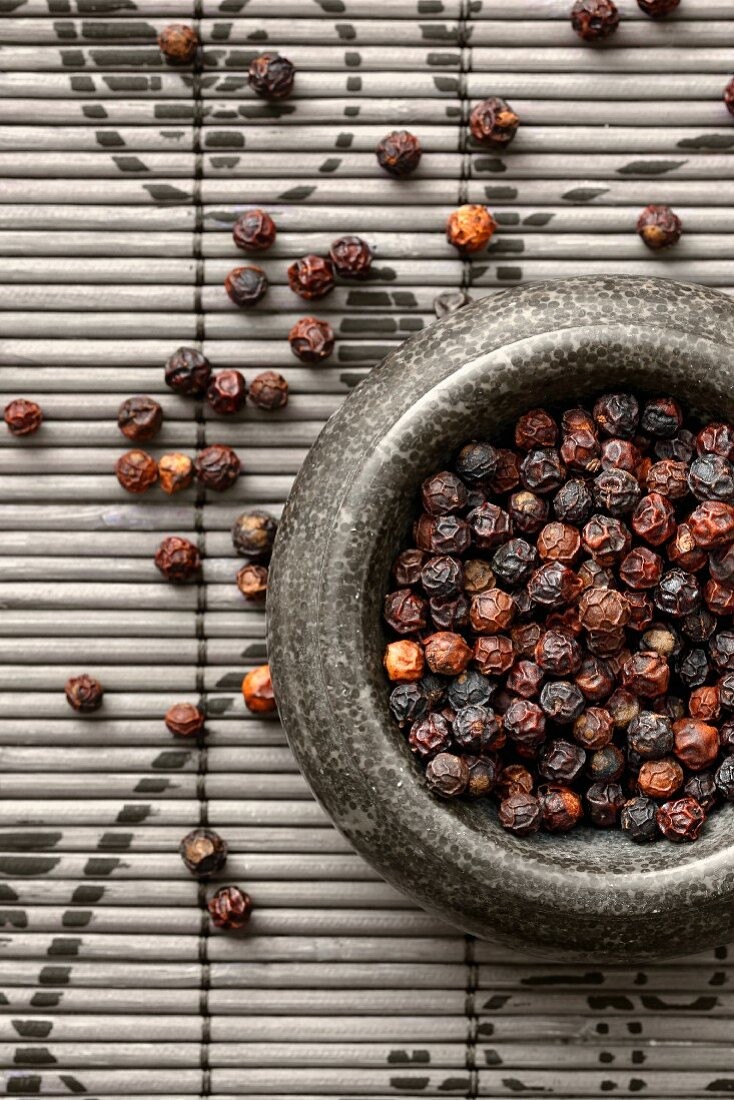 |
| Photo: Stock Food |
Phu Quoc produces over an incredible 1000 tons of the best quality black pepper each year. You’ll find pepper plantations mostly around the central and northern parts of the island and most farmers won’t mind you stopping to take photo’s or viewing these amazing storks of pepper trees or the drying pepper.
Phu Quoc pepper is famous for its heat, pungency and strong aroma, especially the red pepper. In Phu Quoc, farmers do not use chemical fertilizers but organic fertilizers and dry peppers under the sunlight instead of by machine as in other regions. There is approximately 385 hectar of pepper plantations on Phu Quoc Island. Ripe peppercorns are collected by hand and divided into 3 kinds: black pepper, white pepper, and red pepper.
Even though this special pepper is in Phu Quoc, it is now available at other places, which you can find this item in supermarkets and restaurants.
8. Tea
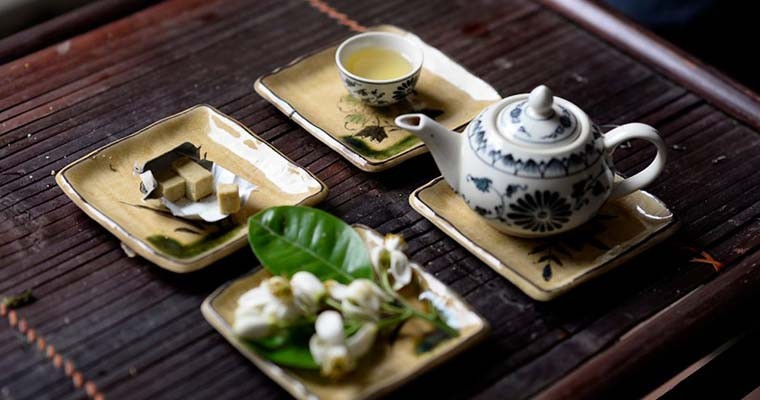 |
| Photo: Authentik Travel |
Vietnam Tea has been an essential drink and a very unique culture of Vietnamese people for three thousand years, without the complex rituals found in other countries. At family reunion, meetings, celebrations, tea and its associated rituals are intrinsically tied to concepts of hospitality, respect for one’s elders, and peaceful communion with nature in Vietnam. Tea for Vietnamese people is a free-flowing and refreshing necessity.
Traditionally, drinking tea of Vietnamese is considered a daily habit of the old people in households and in society in general. In the morning, people start a new day with some cups of tea to wake their power. Patio or garden in the backyard is among the most favorite places for tea appreciating for its closeness to nature, as some fresh air can give extra flavor to the tea. Consuming tea after meals, especially dinner, is also a habit that is loved by many people, when all family members can gather and talk about what they have done during the day.
In Vietnam, you can buy tea at many stores and markets, which can be easily found anywhere.
7. Hand Embroidery
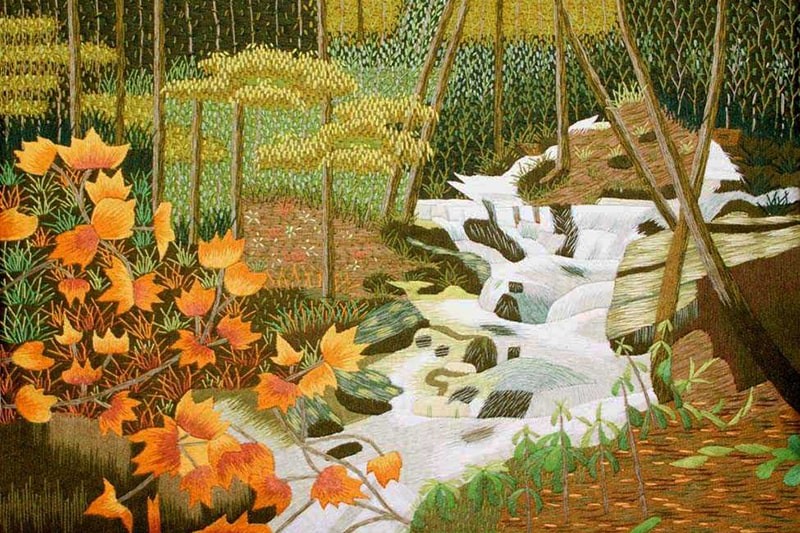 |
| Photo: Nguyen Art Gallery |
In Vietnam, embroidery is a hand craft that existed long time ago. The history of this traditional work connected closely with the spiritual history of the Vietnamese women in the past.
Vietnamese hand embroidery techniques, hailed for its superiority across the world, have been part of the lives of women in Vietnam for thousands of years. Just like learning how to cook and sew, Vietnamese women have naturally picked up embroidery to decorate the interiors of their homes or embellish their clothes. Originally a practical art, hand embroidery became more colorful and elaborate as it absorbed the Chinese embroidery art and French embroidery techniques between the 17th and 19th centuries. Embroidery artists portrayed not just Vietnam’s nature and landscape, but the faces of historical figures using the needle and thread. Among those works, some are masterpieces that applied over 500 colors and took years to complete. Embroidery details can be found on ao dai, Vietnam’s traditional costume, or silk scarves.
Even in wartime, Vietnamese women would sing peace as they sewed poetry and drawings that symbolize freedom on items such as handkerchiefs, fans, and baby garments. In other words, embroidery has existed as a means of expressing Vietnamese spirit in the difficult times ravaged by war and subordination under the colonial rule.
6. Coconut candy
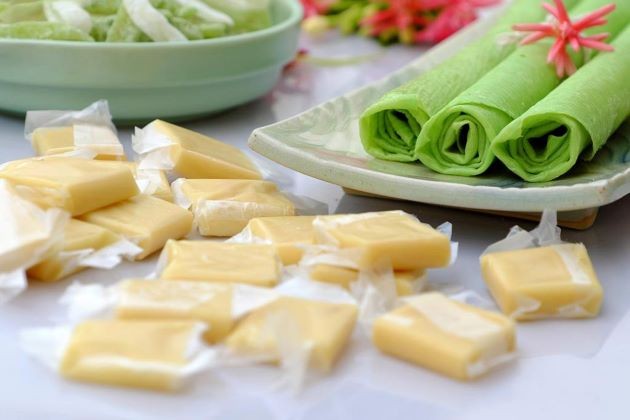 |
| Photo: Vietnam Tour operator |
Once setting your foot in the prosperous land of the Mekong Delta, don’t hesitate to give the incredible local food a try. For a sweet tooth, that means you should never miss the sticky, chewy, yet tasty thing called the Vietnamese coconut candy.
First introduced in the 1930s, Vietnamese coconut candy is the creation of Ms. Nguyen Thi Ngoc in Ben Tre Province – the so-called “Kingdom of Coconut”. But it was not until 1970 that Thanh Long – the first factory of this sweet – appeared and the industry has flourished since then.
Nowadays, more than a hundred factories in Ben Tre produce this confectionary, making an association of coconut candy suppliers. Interestingly, this specialty is not only delivered throughout the country but also exported to China, Laos, Australia, Germany, Sweden, etc.
There are many flavors, such as plain, durian, or chocolate. A unique feature of this candy is the thin edible rice crust surrounding it.
5. Lanterns
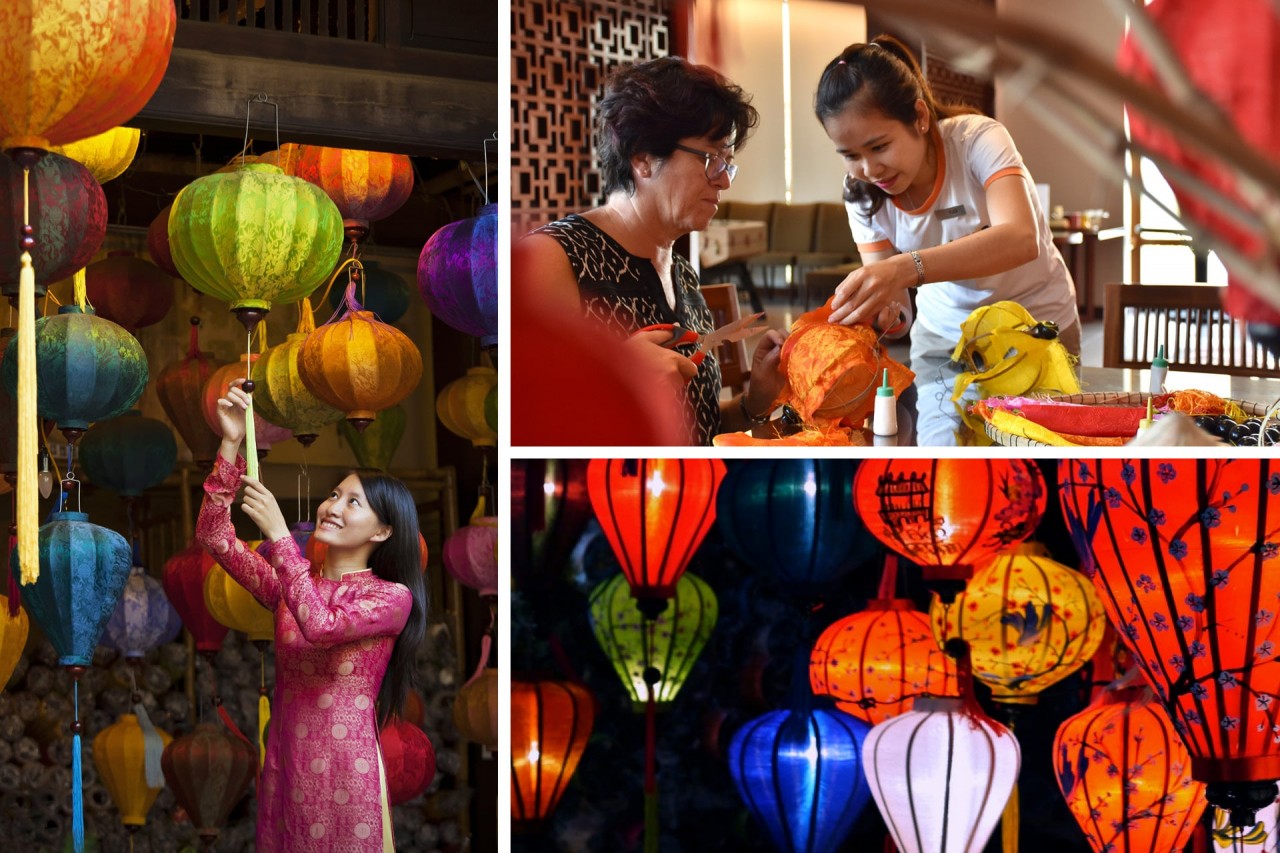 |
| Photo: Laguna Lang Co |
Traditional silk lanterns, coming to Vietnam several centuries ago via Chinese merchants, are a special product from Hoi An – one of busiest commercial centres in Southeast Asia in the 16th-17th centuries. The lantern craft in Hoi An has since become world-famous.
In the past, Vietnamese people often hung the lanterns with oil lamps on the eaves and both sides of the door to light up the whole quarters with a glowing, mysterious light at night, with hopes to bring in good luck and warmth for the town as well as happiness for the family.
Vietnamese people now use Hoi An lanterns in all special events and festivals such as Lunar New Year or Full Moon Festival or simply to decorate their houses and shops. Nowadays, the lantern craft has amazing diversity with many shapes such as sphere, hexagon, diamond, tetragon, and circular cylinder.
4. Ceramic pottery
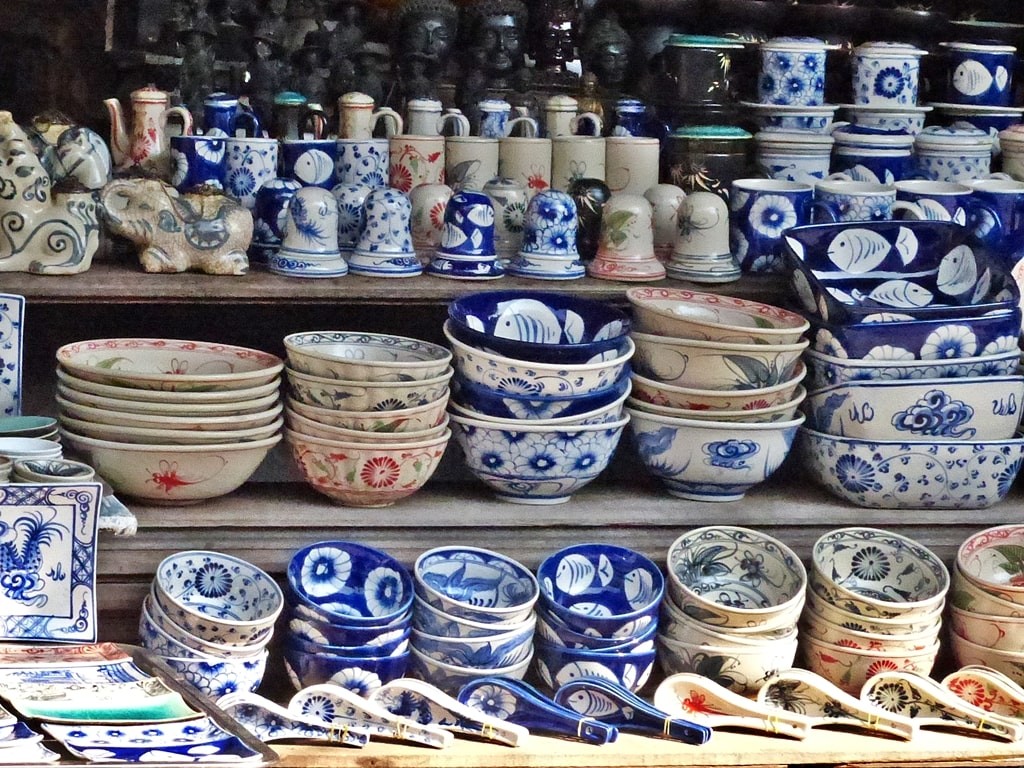 |
| Photo: Master of Craft |
Ceramics is one of the important inventions of our ancestors for thousands of generations, ceramics has been closely linked with the lives of our people. With creativity and deft hands of the potter, pottery Vietnam has become a kind of folk art deep nature.
Much of Vietnamese pottery and ceramics after the Chinese-domination era was largely influenced by Chinese ceramics, but has developed over time to be distinctly Vietnamese. Vietnamese potters combined indigenous and Chinese elements. They also experimented with both original and individual styles as well as incorporated features from other cultures, such as Cambodia, India and Champa.
Vietnamese ceramics were an essential part of the trade between Vietnam and its neighbors during pre-modern times through all the periods.
3. Ao Dai
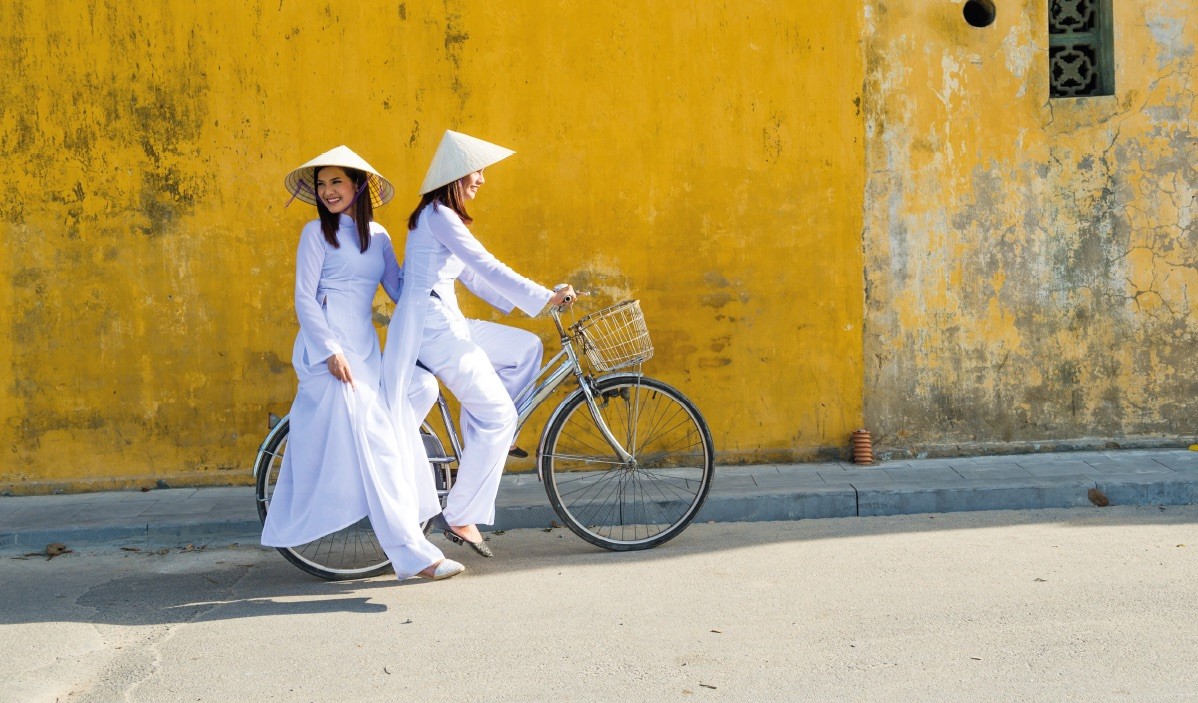 |
| Photo: A Dong Silk |
Vietnam’s national dress, Ao Dai is one of the country’s most striking symbols of beauty. Over hundreds of years, Ao Dai has evolved alongside Vietnam, going from regal to practical, humble to high fashion, and back again. The Vietnamese Ao Dai is appreciated by the young and old alike, and its elegant lines flatter both men and women.
Vietnamese women love wearing Ao Dai for photo shoots in beautiful settings. Golden Autumn days in Hanoi call for photo sessions around Hoan Kiem Lake. During Tet (Lunar New Year) you’ll see the dress in all its glory as women wear it to visit friends and family, and pay tribute at temples and shrines. A wedding is the perfect time to wear one’s best Ao Dai. In Vietnam, the bride and groom and the wedding entourage will wear elaborate áo dài at the traditional ceremony, then guests will show up for the reception in simpler but equally colourful designs.
2. Conical Hat
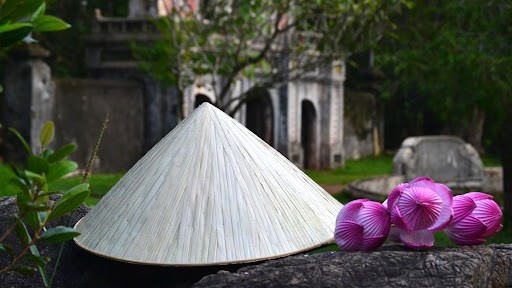 |
| Photo: Ancient Orient Journeys |
Buying a conical hat may seem novelty, but it’s one of the most practical items for travelling, especially during Vietnam’s downpours and scorching summers. Also known as non la, these hats have been around since the 18th century and are typically handwoven using bamboo, palm leaves, and the bark of Moc trees. Depending on the quality, conical hats sold at souvenir shops cost between VND 30,000 and VND 100,000 while local markets sell them for less than VND 10,000.
Chuong village produces 7,000 to 8,000 conical hats per day and about three million hats per year for both domestic use and export. “Our regular clients from the south, the centre or other northern provinces phone in orders so we can deliver immediately,” said Tuy, a 40-year old craftsman. “My latest contract is with a handicrafts export company, in which I proposed to export up to 5,000 conical hats to Japan.”
1. Paintings
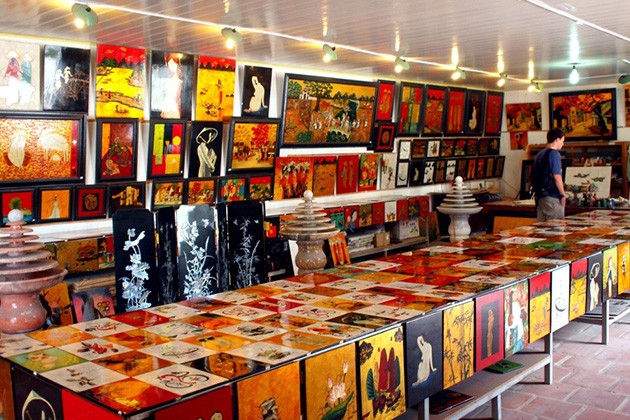 |
| Photo: Indochina Tours |
Purchasing paintings is one of the best ways to preserve your memories of Vietnam.
Wandering around towns or city centers, you can find little painting shops with a collection of works from anonymous artists to famous painters.
Most of the displayed paintings describe the arty parts of daily life, locals, and natural scenery in Vietnam. Price can vary from $10 to thousands of dollars for a piece.



